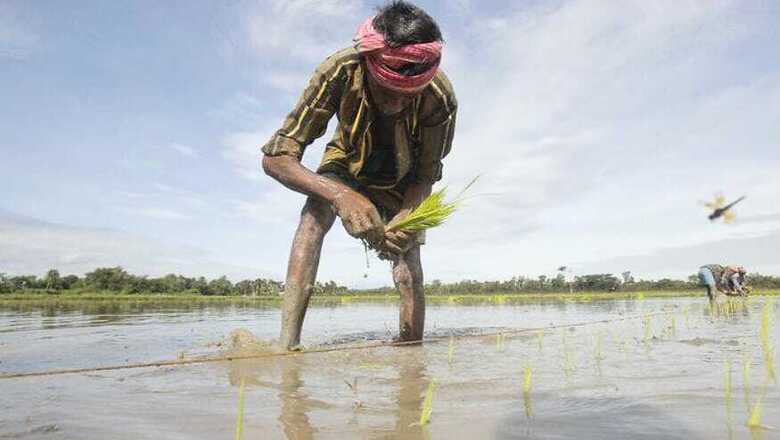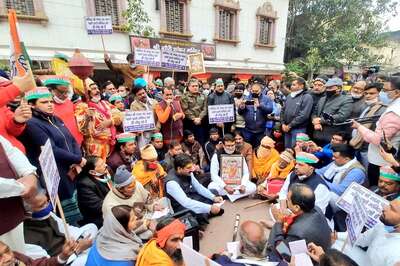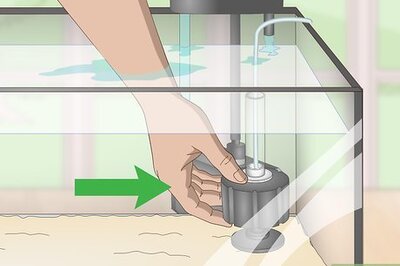
views
New Delhi: Admitting the Centre’s inability to procure all crops from farmers and thus ensure minimum support price (MSP), the Ministry of Agriculture will be appointing private registered trading firms to widen the MSP net.
NITI Aayog in collaboration with the Ministry of Agriculture has identified logistics issues that prevent the government from buying crops other than wheat and paddy.
“There are storage issues. The government is not able to buy all crops. Where will we keep the stock even if we buy? We are coming up with a plan to rope in private players so that farmers are provided with MSP,” said a highly placed official in NITI Aayog.
The government currently allows MSP for 25 crops but buys only wheat and paddy as there is a scarcity of storage units.
The agriculture ministry is also planning to move a Cabinet note seeking approval for a new policy.
The policy, as informed by officials, will aim to rope in both states and private firms in the procurement of crops other than wheat and paddy.
The ministry along with NITI Aayog has proposed three models: Market Assurance Scheme (MAS), Price Deficiency Procurement Scheme (PDPS) and Private Procurement and Stockists Scheme.
In case of MAS, the official said, it is to be implemented by state governments who can take immediate decisions on the basis of local conditions, to enter the market and begin procurement through their own state agencies or any other private agency authorised by states.
States will be responsible for procurement and liquidation of the procured commodity. The central government will compensate the operational loss, if any, on value of MSP, up to a maximum 30-40 percent.
The second model proposed under the policy is Price Deficiency Procurement Scheme (PDPS). Under the PDPS scheme, if the sale price is below a model price then the farmers would be compensated to the difference between the MSP and actual price, subject to certain condition and ceiling.
The MAS and PDPS are primarily government-owned and driven schemes. The central government wants to bring in private sector players to supplement its schemes.
Also, the existing Price Support Scheme (PSS) and Market Intervention Scheme (MIS) will be discontinued once the new policy is in place, the sources added.
Implementation of the Swaminathan Commission recommendations has been one of the key demands of protesting farmers who have been agitating throughout the country for the past several months.
One of the key recommendations of the report is that “MSP should be at least 50% more than the weighted average cost of production.”




















Comments
0 comment